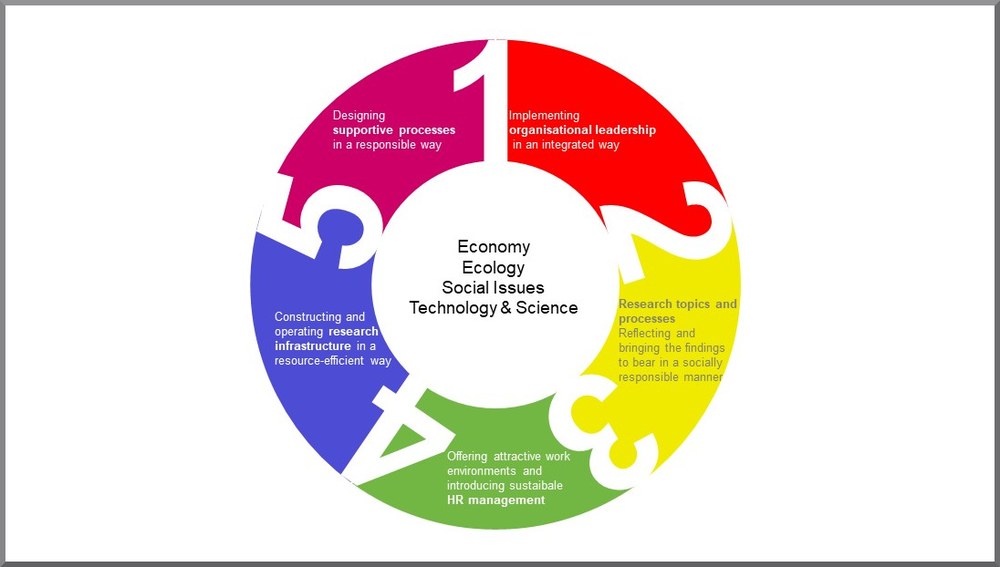Researching sustainably – and research for sustainability
Insight into an exciting balancing act – interview with Anke Kaysser-Pyzalla, Chair of the DLR Executive Board, and Klaus Hamacher, the Deputy Chair.

DLR's goal is a transformation towards a climate-neutral society. It is conducting research to make this happen, while also looking to become a climate-neutral research institution itself in the foreseeable future. The DLR Executive Board is particularly focused on this aim: "It is vital that we establish sustainable thinking as a fundamental building block in our daily actions and in the orientation of our research topics."
This is exactly what is stated in the DLR Sustainability Strategy, based on the "Sustainability Management in Non-University Research Institutions" (LeNa) guidelines. It also supports the SDGs formulated by the United Nations in 2015, the German Sustainability Strategy and the European Union's Green Deal.
Three major areas – the environment, the economy and social issues – must be taken into account when implementing a new understanding of sustainable progress. Sustainable research and work look at how ongoing research, everyday work and entire structures can become more sustainable without compromising the quality of research. To achieve this, DLR has defined five fields of action.
Implementing organisational leadership in an integrated way

Helmholtz Association
Compliance with the basic principles of good and responsible organisational management is a prerequisite for establishing flexible and transparent sustainability management. This includes promoting a culture in which the principles of integrative organisational management are observed. At DLR, these basic principles are promoted through inclusive organisational development and a culture of empowerment.
Reflecting on research topics and processes and bringing the findings to bear in a socially responsible manner

Helmholtz Association
DLR adheres to principles of good scientific practice and seeks to promote skills that engender a whole-system and socially responsible approach to research. By conducting research with requirements for sustainability, DLR is rethinking how to assess findings and their potential impacts in light of the organisation's social responsibility. Exchanging knowledge with civil society, government and business is an important part of this.
Offering attractive work environments and introducing sustainable HR management

Helmholtz Association
DLR offers attractive job opportunities within a dynamic environment. It is crucial to attract qualified employees at all levels and deploy them according to their skills. This involves support with career development, dealing responsibly with temporary employees and offering equal opportunities at all levels. HR management also appreciates diversity, health-promoting working conditions for all personnel and the development of skills for sustainable and responsible actions.
Constructing and operating research infrastructure in a resource-efficient way

Helmholtz Association
DLR is guided by the principles of sustainable development from the planning stage right through to the construction and operation of its research infrastructure. This whole-system approach includes needs-based, attractive, future-oriented jobs in research, administration and operations. This calls for the fulfilment of technical and functional requirements, user satisfaction, energy and resource efficiency, cost-effectiveness and design quality.
Designing supportive processes in a responsible way

Helmholtz Association
DLR designs all the processes involved in its research operations, together with the administration and supporting organisational units, in a resource-efficient and responsible way. In doing so, it integrates various aspects of sustainability, such as the purchasing of products and services, the mobility requirements of employees and the organisation and the implementation of research conferences.
